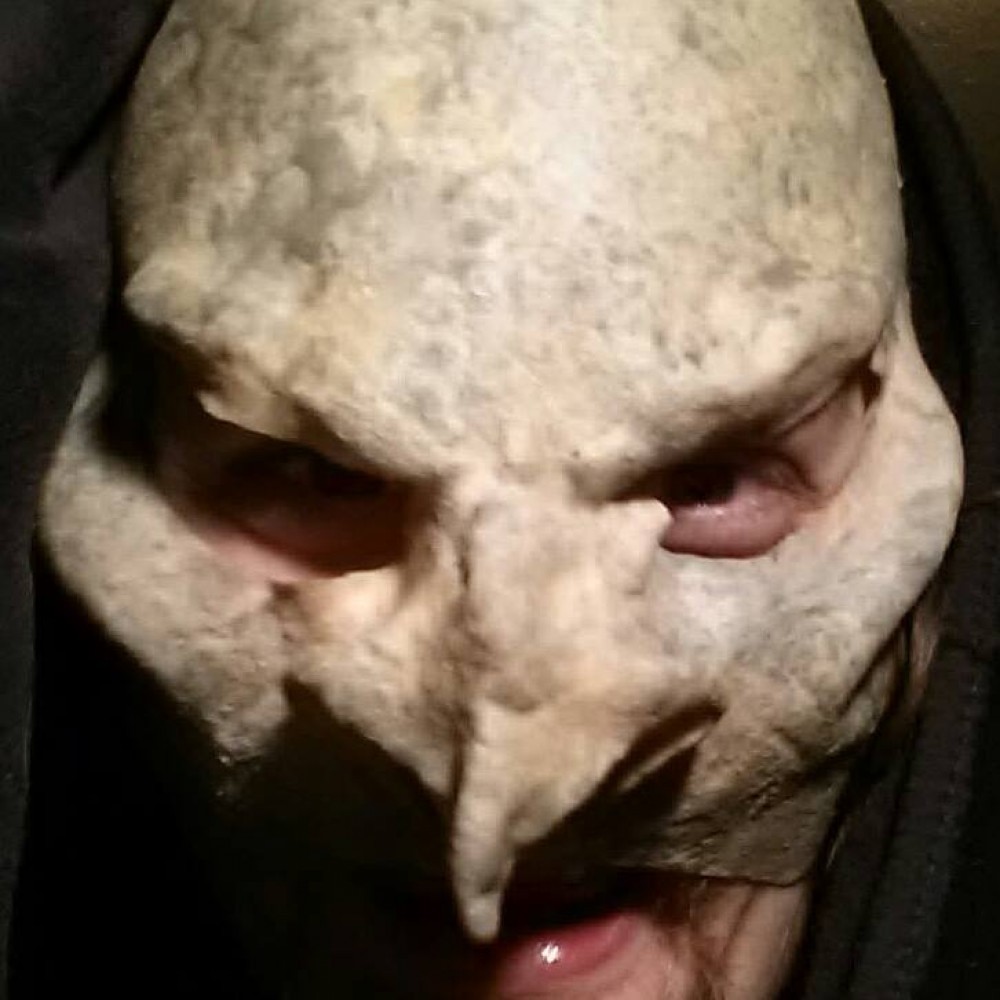Lesson I Background Information grammar
I know you'll be tempted to skip this stuff, but humor me and just read through it once. You probably already know that J. R. R. Tolkien’s original Black Speech consists of only two phrases and several orc names. First, the famous Ring inscription: “Ash nazg durbatulûk, ash nazg gimbatul, ash nazg thrakatulûk, agh burzum-ishi krimpatul.”
“One ring to rule them all, one ring to find them, one ring to bring them all and in the darkness bind them.”
There is also an orc curse by Tolkien, which appears in Book 3 of The Two Towers:
“Uglûk u bagronk sha pushdug Saruman-glob bûb-hosh skai!” which is translated as:
"Uglûk to the dung pit with stinking Saruman-filth - pig-guts gah!"
Apparently Tolkien later forgot that he had already translated the orc curse and so made up a new translation:
"Uglûk to the cesspool, sha! the dungfilth; the great Saruman-fool, skai!"
~*~
This dictionary, which was created for the Mordor, Land of Shadows Message Board (abbreviated “LOS”), uses both translations. I decided to do this for several reasons: first, we have so little original JRRT Black Speech, that I thought it would be best to follow both translations, even if the results can be a little confusing. Second, I noticed that folks on that Message Board were already mixing up the two translations, so I decided just to go with the flow. Third, using both translations gives us a little more flexibility with the vocabulary. Finally, the orcs in Mordor were constantly fighting over stupid, trivial causes, so I didn’t think it would be a problem to mix things up a bit more by creating confusion with word meanings.
Other than the phrases above (and about half a dozen orc names invented by Tolkien), all phrases and words are new and were invented by people other than JRRT. The dictionary that comes with these lessons was partly based on A. Appleyard’s work, which appears in this site: http://www.dcs.ed.ac.uk/misc/local/TolkLang/articles/Appleyard.BlackSpeech
My dictionary also uses ideas from the Ardalambion site. I don’t know the name of the author: http://www.uib.no/People/hnohf/orkish.htm --and on this one by Craig Daniel: http://www.uib.no/People/hnohf/blackspeech.htm But my impression is that Daniel’s work is controversial, and I don’t agree with everything he says. Still, his ideas on pronunciation and on Black Speech sounds and letters are correct. The English-Orcish dictionary was based on the work of Rob Eaglestone, also a contributor to Tolklang. A word of caution: several online RPG groups have created new words and phrases. Because many of these people are making up the words to suit their activity, not to conform with Tolkien’s language or grammar, these sites are not completely reliable as guides to Tolkien's ideas. Some are better than others, so be careful. For other URL's, please see the dictionary.
~*~
I will try to avoid technical terms (because I don’t know many) but I do think it would be helpful to have a basic understanding of English grammar before you begin.
One other point: Sauron invented the original Black Speech. This language, which he mostly drew from the ancient languages of Arda, is considered “Classical Black Speech” (abbreviated CBS). The Ring inscription is the only example we have of CBS. The orc curse is an example of Debased Black Speech (DBS), which is a mixture of CBS, orcish dialects, and so on. As stated in the appendix to LOTR, the orcs spoke a debased version of CBS. I am assuming that the Black Speech in this dictionary and in these lessons is basically Debased Black Speech, and will therefore allow for small variations and errors.
~*~
Here is a very quick overview of Black Speech grammar, to get you started:
Black Speech has no articles, either definite (the) or indefinite (a, an). All verbs are quite regular. Sentences appear to be constructed similarly to English: subject-verb-object (Lat bugd Uruk = you call the Uruk). BS differs from English in that adjectives and adverbs follow the words they modify. (Lat bugd Uruk gothûrz = you call the powerful Uruk.) By the way, misplacing adjectives seems to be the most common mistake beginners make—be careful always to put the adjective after the word it modifies.
In Black Speech prepositions like to, of, in, by are suffixed to the word they modify (for example, Mordor-ishi = in Mordor; Gondor-ob = of Gondor, Saruman-irzi = by Saruman.) You might already have noticed that the orc was using poor grammar in his curse, when he said “Uglûk u bagronk.” He should have said, “Uglûk bagronk-u.” This is a good example of orc grammatical sloppiness, but such mistakes occur frequently in orc speech.
~*~
Feel free to use this information any way you like, but please be careful to give the appropriate credit to all the various web sites / inventors who have contributed to the development of Black Speech. I would appreciate any feedback or criticism of these lessons or the dictionary. Please email me at [email protected]. Thanks!
~*~
How to use these lessons:
The lessons are more or less in order of difficulty. The second set, 6-10, includes some tricky exercises and grammatical rules. I have not yet worked out the third set, but obviously that will be even more difficult. It might be very helpful to have on hand a basic book on English grammar. Good luck!
A note about names in other languages: I have not tried to translate Sindarin, Quenya, or Common Speech names into Black Speech. Therefore you will find names like Gondor, Shelob, Saruman, etc., in the lessons.
